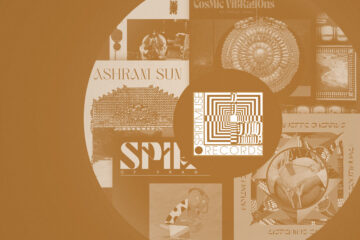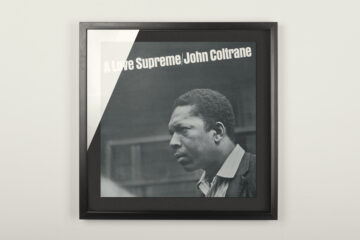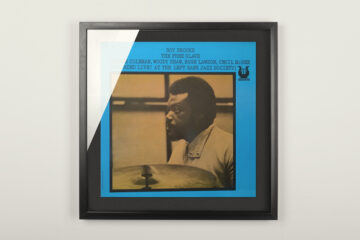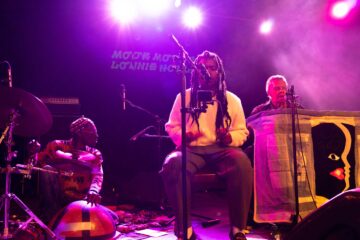You learn more from bad films than from good ones. At least that’s how the saying goes. If that’s true, then the film »Whiplash« should be compulsory viewing for budding musicians and critics. In it, a young jazz drummer – and with him an entire big band – is drilled, humiliated and physically abused by a patriarchal-authoritarian conductor until he decides to quit. It’s about perfection, self-optimisation, drive and dedication. According to the film, quality can only arise where torture is the daily bread. As if modern times hadn’t proven a hundred times that something meaningful can also come about without the need for mastery and violence.
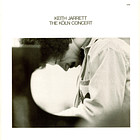
The Köln Concert
Which brings us to Keith Jarrett‘s masterpiece, »The Köln Concert«. Because this concert recording is missing a lot, including the basics of what »Whiplash« wants us to believe and preach: It’s not the authoritarian character, the technical devastation that makes »The Köln Concert« the best-selling solo jazz record of all time, but a tangible spirit that, despite all doubts about such concepts, must be described as magic.
In order to penetrate this metaphysical core, it is first necessary to describe the very earthly problems, obstacles and peculiarities of this recording.
Under the spell of improvisation
It is the year 1975, the 24th of January, to be precise. The night before, Jarrett, who had already been allowed to play electric piano while he was »high as a kite« in Miles Davis’s band in 1970 – we remember the Isle of Wight Festival – but was only just on his way to becoming a star in his own right, had played another concert in Switzerland and was now driving an old banger down the motorway towards Cologne in the early hours of the morning. Hungry and sleep-deprived, Jarrett arrives in Cologne – and finds the wrong piano in the Cologne Opera House. Instead of a first-class concert grand piano, a communication error has led to an out-of-tune and broken practice piano being placed on stage; with no prospect of a short-term remedy for this unfortunate turn of events. During the soundcheck, disaster strikes: a pedal is broken, and several keys do no work properly.
The hastily procured instrument suffers so much that it sounds even worse than the practice piano that was already present.
»The concert has to be cancelled!«, is Jarret’s reaction. [The organiser, Vera Brandes, who was only 18 at the time and later became a German jazz legend, asks him to play, she will bring a better instrument. This figures, after all, a music school is only a few minutes’ walk from the opera house in the city centre. On the bumpy road (because proper transport was no longer available) and under the influence of the icy temperatures in the otherwise rather mild cathedral city, the hastily procured instrument suffers so much that it sounds even worse than the practice piano that was already there. But Jarrett is resigned to his fate and comes up with an idea. To make a virtue out of necessity. He would no longer rank the pernicious conditions as an impossibility or an excuse, but would make them part of his improvisation.
The result not only captivated the audience in Cologne that evening, but, as mentioned at the beginning, is still captivating millions of record buyers in their homes today.
Euphoria thanks to deep affection
But what makes the »Köln Concert« so magical? It’s not the improvisation and it’s not the solo performance. By 1975, many top jazz musicians had been giving solo concerts for many years; the saxophonist Sonny Rollins had been playing solo improvisation concerts ten years earlier. Nor is the record of extraordinary musical brilliance, nor of great avant-gardism; it is not overworked.
Until he suffered his strokes a few years ago, Jarrett was known as an imaginative but not necessarily inventive pianist, not a brilliant mind whose originality lay in masterly escapades but in his very sensitive affection for the piano. He proves this here, when in the first part he develops from a simple basic motif (the interval gong of the opera) a studious playing attitude, which is not necessarily influenced by the jazz of the seventies, but moves and sways loosely on the narrow ridge between black, American and white, European tradition. The fact that he started out without a fixed repertoire, reinventing his concerts from scratch and often having to deal musically with external circumstances out of this control, should prove to be an advantage.
After about ten minutes Jarrett starts to groove, again and again you can hear his own moaning, grunting and groaning, which testify to the pianist’s diligence and inspiration, which also tell of his almost transcendental closeness to his own playing: Jarrett kidnaps the listener into a sound-aesthetic narrative and is already deep in the flow. In the second part (»Part IIa«) this fusion with the sounds takes over completely; Jarrett now pursues bluesy points of reference, flies through the first few minutes on a rhythmic ostinato and soon breaks down. The record comes to an elegiac end, swirls through the air again in »Part IIb«, becomes more minimal and finally lulls the listener into contemplation. »The Köln Concert« has been the pride of every audiophile lover of what are commonly referred to as major albums for many decades. In the last two decades, the myth of »The Köln Concert« has suffered somewhat; a development that records have to go through time and again before being rediscovered. The 50th anniversary, however, is a more than welcome opportunity to listen to this strange, inspiring piece of music again. You can save yourself the film night of watching »Whiplash«.


